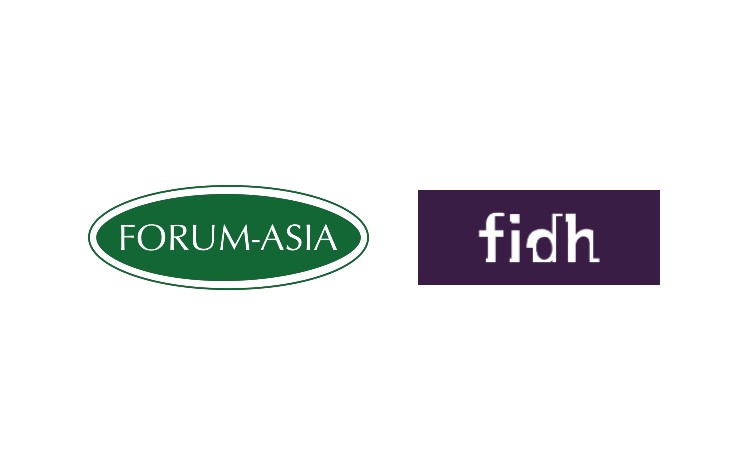
India: End judicial harassment and intimidation of journalists and human rights defenders in Jammu and Kashmir
(Bangkok/Kathmandu, 28 April 2020) – The intimidation and criminalisation of journalists and human rights defenders in Indian-administered Jammu and Kashmir constitute a serious violation of their fundamental rights and freedoms, and it must end, the Asian Forum for Human Rights and Development (FORUM-ASIA) and the International Federation for Human Rights (FIDH) said today in a joint statement.
A series of state intimidation against three journalists in Kashmir, Masrat Zahra, Peerzada Ashiq and Gowhar Gelani, recently, shows a concerning trend of repressing dissenting voices by the Indian Government. They have been charged under the Unlawful Activities (Prevention) Act (UAPA), India’s counter-terrorism law that has been used to target journalists and human rights defenders critical of the Government.
As a photojournalist, Masrat Zahra has been reporting issues of women and children in conflict in Jammu and Kashmir on her social media. On 18 April, the Cyber Police Station of Jammu and Kashmir charged her under Section 13 of the UAPA[1] that relates to the commission of any unlawful activity and Section 505 of the Indian Penal Code[2] which punishes an offence against the state or against public tranquillity. The police alleged that Zahra’s posts promoted anti-national activities and unrest among the youth.[3]
On 20 April, Peerzada Ashiq, who works as a Kashmir-based special correspondent for the newspaper The Hindu, was summoned by the Jammu and Kashmir police over a story that was published on 19 April about the families of two deceased militants who wanted to exhume their bodies to perform funeral rites.[4] The police alleged that ‘the news item was factually incorrect and could cause fear or alarm in the minds of the public,’ without specifying the exact laws violated by Ashiq.[5]
On 21 April, the cyber police filed a First Information Report (FIR) against senior journalist, political commentator and author Gowher Geelani, who has been critical of the Indian Government’s policies as well as the repression and militarisation of Kashmir. Geelani was charged for his social media posts, which, according to the police, glorified terrorism.
In addition, the Cyber Police Station has increased surveillance, while harassing and forcing journalists and human rights defenders to post apologies on social media for ‘indulging in unlawful activities through posts and writings on social media platform.’ FORUM-ASIA and FIDH condemn such harassment and urge the Government of India not to muzzle dissenting opinions.
Additionally, social media users in the region – including human rights defenders – have been charged under the UAPA for allegedly ‘misusing social media’ because they have been using proxy servers and other software to elude the Government’s online censorship enforced since the abrogation of the special status of Jammu and Kashmir in 2019.[6]
FORUM-ASIA’s documentation shows that journalists and media workers are ranked as one of the most targeted groups of defenders in India. In the past year, at least 68 cases of abuses against human rights defenders were recorded.[7]
The crackdown on journalists for carrying out their professional work is a violation of their fundamental rights and freedoms, including freedom of expression. FORUM-ASIA and FIDH urge the Government of India to ensure that any measure limiting the freedom of expression, assembly and association on the Internet is based on clearly-defined criteria in accordance with international law including international human rights law.
Journalists should be allowed to operate free from any form of state surveillance, intimidation and censorship. We condemn the abuse of counter-terrorism laws and the judicial harassment of journalists, and remind the Government of India that such acts are against the values of democracy, which is enshrined in Article 19(1)(a) of the Indian Constitution. FORUM-ASIA and FIDH call upon the state authorities to immediately drop all charges against these journalists and end state surveillances of journalists and human rights defenders.
For further information, please contact:
- South Asia Programme, FORUM-ASIA, [email protected]
For media inquiry, please contact:
Yi-Lan, Communication and Media Programme, FORUM-ASIA, [email protected]
[1] https://indiankanoon.org/doc/1214158/
[2] https://www.indianpenalcode.in/ipc-505/
[3] https://scroll.in/latest/959703/kashmir-photojournalist-charged-under-uapa-for-anti-national-social-media-posts
[4] https://www.thehindu.com/news/national/families-of-slain-militants-given-curfew-pass/article31378804.ece
[5] https://theprint.in/india/the-hindu-journalist-questioned-by-jk-police-in-2nd-fir-against-media-personnel-in-kashmir/406015/
[6] https://www.moneycontrol.com/news/india/jk-police-slap-uapa-on-those-misusing-social-media-platforms-4956081.html
[7] FORUM-ASIA recorded total 68 cases of abuses against human rights defenders in India during 27 April 2019 and 27 April 2020. Out of 68 cases, 25 cases were against journalists and media workers.
***
For a PDF version of this joint statement, click here



